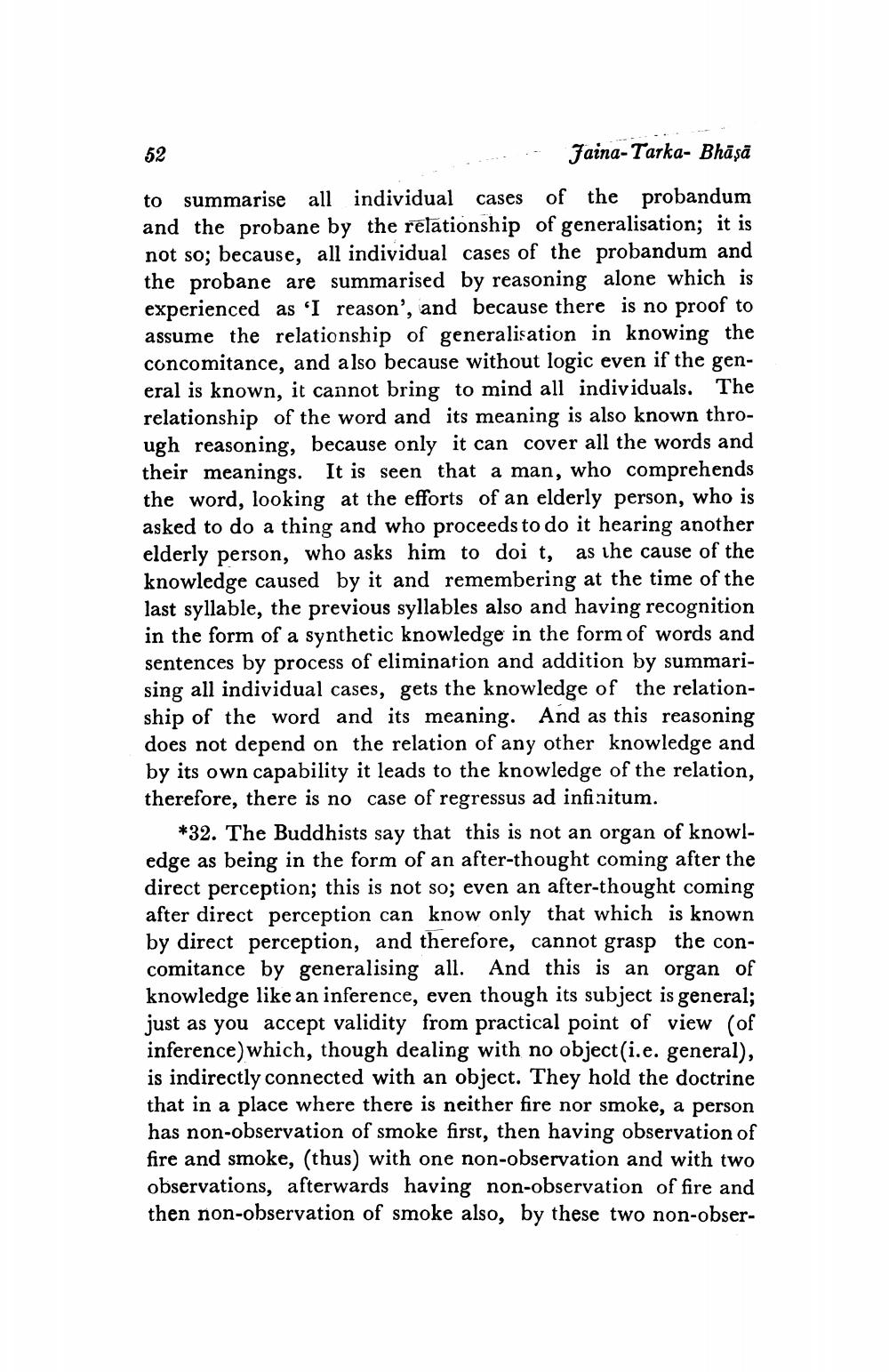________________
52
Jaina-Tarka- Bhāṣā to summarise all individual cases of the probandum and the probane by the relationship of generalisation; it is not so; because, all individual cases of the probandum and the probane are summarised by reasoning alone which is experienced as 'I reason', and because there is no proof to assume the relationship of generalisation in knowing the concomitance, and also because without logic even if the general is known, it cannot bring to mind all individuals. The relationship of the word and its meaning is also known through reasoning, because only it can cover all the words and their meanings. It is seen that a man, who comprehends the word, looking at the efforts of an elderly person, who is asked to do a thing and who proceeds to do it hearing another elderly person, who asks him to doi t, as the cause of the knowledge caused by it and remembering at the time of the last syllable, the previous syllables also and having recognition in the form of a synthetic knowledge in the form of words and sentences by process of elimination and addition by summarising all individual cases, gets the knowledge of the relationship of the word and its meaning. And as this reasoning does not depend on the relation of any other knowledge and by its own capability it leads to the knowledge of the relation, therefore, there is no case of regressus ad infinitum.
*32. The Buddhists say that this is not an organ of knowledge as being in the form of an after-thought coming after the direct perception; this is not so; even an after-thought coming after direct perception can know only that which is known by direct perception, and therefore, cannot grasp the concomitance by generalising all. And this is an organ of knowledge like an inference, even though its subject is general; just as you accept validity from practical point of view (of inference) which, though dealing with no object(i.e. general), is indirectly connected with an object. They hold the doctrine that in a place where there is neither fire nor smoke, a person has non-observation of smoke first, then having observation of fire and smoke, (thus) with one non-observation and with two observations, afterwards having non-observation of fire and then non-observation of smoke also, by these two non-obser




